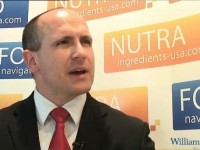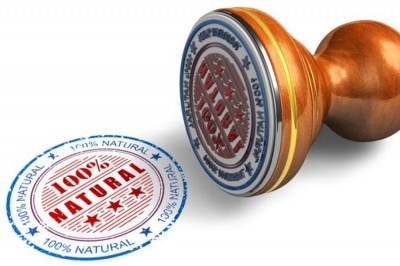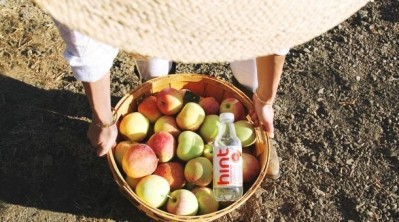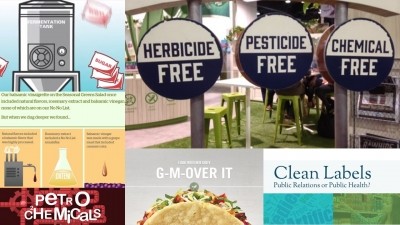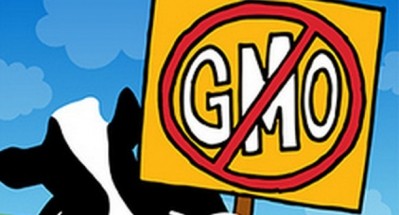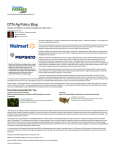Frito-Lay to avoid 'natural' claims on selected products until FDA weighs in
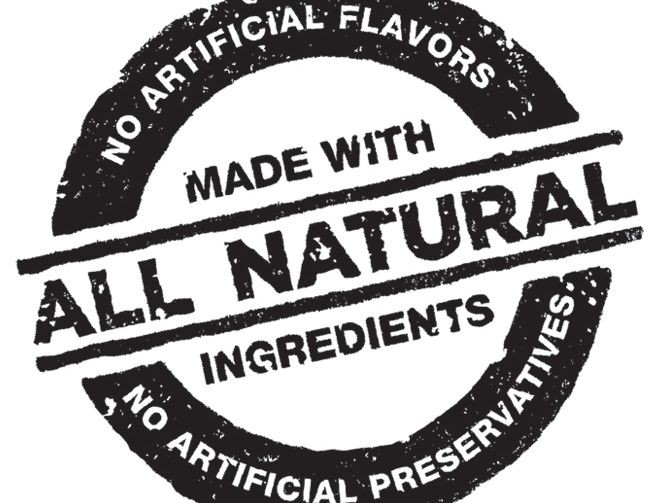
It has further agreed not to label the foods – selected Tostitos, SunChips and Frito’s Bean Dips products - as ‘natural’ under any circumstances over the next five years unless all their ingredients are determined to be natural “by a federal agency or controlling regulatory body,” in order to resolve a legal dispute that has dragged on for more than five years.
The consolidated multi-district litigation* is one of several lawsuits in which big brands have locked horns with consumers over the ‘natural’ credentials of foods containing ingredients that may have been derived from genetically engineered crops.
While Frito-Lay North America had argued that it was “objectively unreasonable for any consumer to view the inclusion of the word ‘natural’ on a product label as an implicit representation that the corn from which the product is made” is GMO-free, it subsequently agreed to a lengthy mediation process with the plaintiffs.
Non-GMO claims
It has not admitted liability, but has agreed to pay up to $215,000 for the cost of class notice, up to $5,000 each to the named plaintiffs, $1.9m for attorneys’ fees and $200,000 in costs and expenses.
In an October 3 memo urging a New York court to approve the settlement, the plaintiffs said the snack foods giant had also agreed to refrain from making non-GMO claims on the products “unless the claim is certified by an independent third-party certification organization.”
Frito-Lay has also agreed to modify FAQ pages on its websites to direct consumers looking for non-GMO ingredients to appropriate Frito-Lay products.
'The settlement provides the primary relief sought by the class'
While the plaintiffs believe they have a strong case, they “recognize that they face several obstacles to obtaining and maintaining class certification,” said their attorneys, adding that monetary damages for class members should the litigation succeed would only be “nominal,” and that, “Even if plaintiffs succeed at trial, it is unlikely that the injunctive relief obtained would be broader than that obtained in the settlement and could, in fact, be narrower.”
They added: “The settlement provides the primary relief sought by the class—the assurance that the products will not be labeled, marketed or advertised as ‘natural’ unless the use of ‘natural’ claims on products containing GMOs is expressly authorized by FDA guidance or state or federal legislation.”
The settlement also “protects the class against the potentially misleading use of a ‘natural’ claim on the products in question for any reason, not just the presence of GMOs,” they said.
Frito-Lay did not respond to requests for comment on the case.
*Frito-Lay North America, Inc. 'All Natural' Litigation, eastern district of New York, 1:12.md-02413
Natural claims and GMOs
In its oft-quoted 1991 guidance, the FDA states that natural means “nothing artificial or synthetic . . . is included in, or has been added to, the product that would not normally be expected to be there,” but doesn't say whether production methods such as genetic engineering disqualify an ingredient from making ‘natural’ claims.
Indeed, the FDA explicitly noted in its 2015 call for comments that it did not consider production methods when it came up with the above guidance.
"When we established our policy concerning the use of the term 'natural,'... it was not intended to address food production methods, such as the use of genetic engineering or other forms of genetic modification, the use of pesticides, or the use of specific animal husbandry practices, nor did it explicitly address food processing or manufacturing methods, such as thermal technologies, pasteurization, or irradiation."
Natural, organic, non-GMO
And while some consumer groups say it is self-evident that consumers wouldn't consider GMOs to be 'natural,' some natural products industry stakeholders argue that making natural synonymous with non-GMO could have unintended consequences.
The Natural Products Association, for example, surprised many in 2016 by arguing that foods derived from biotech crops should qualify for a 'natural' label.
As CEO Dr Dan Fabricant observed: "If 'natural' became synonymous with non-GMO, there would be no difference between the terms 'natural' and 'organic' [the latter being non-GMO by definition].
"If as a result of litigation or state legislation, food manufacturers are precluded from using the term 'natural' on foods from biotechnology, the two categories would become blended, and consumers would not have a distinct choice between 'natural' and 'organic' foods."

